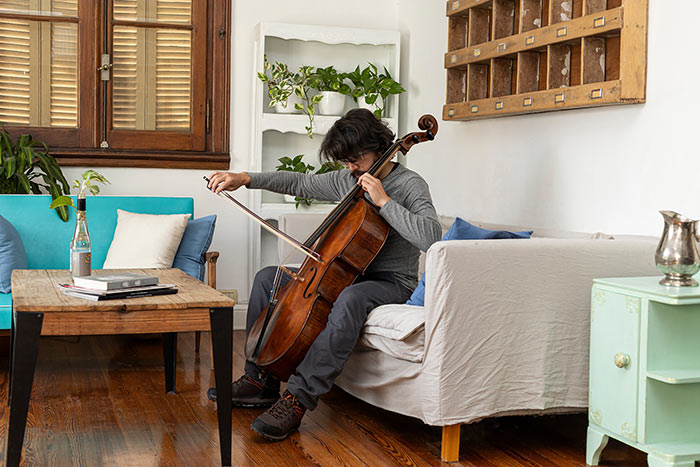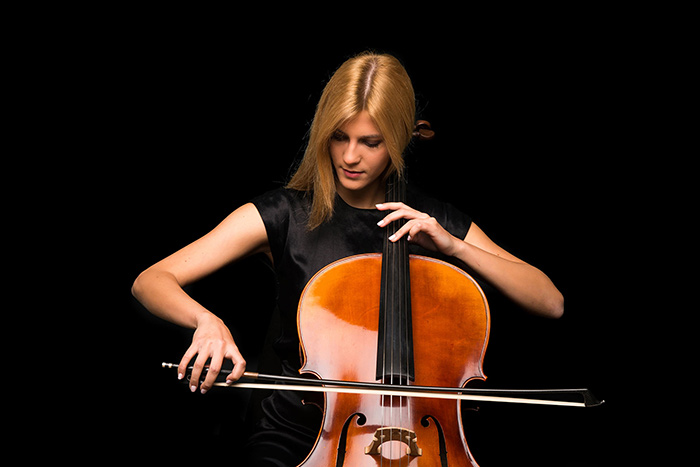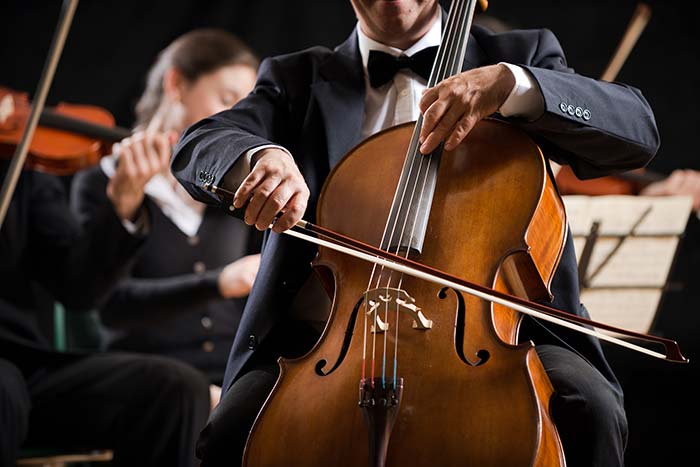The cello, as you likely already know, is an instrument that takes a long time to master.
Even compared to other musical instruments it is complicated and requires a high level of musicality to perform well.
Because of this, it can be a long time before a beginner cellist takes on any kind of performance, and so here are my tips for performance preparation.
I have broken them into three main performance types: concert, exam, audition. These are performances with very different objectives, and require specific preparation in order to execute them well.
Concerts
Before you embark on exams and auditions, you will undoubtedly have numerous concerts under your belt.
For a beginner cellist the first concert can be quite a shock, as many cellists only have their lessons in one room, and then practise in one room, and so a new playing space can be daunting.
In a concert, be ready for a much larger space than you are used to!
I have always been told to ‘play to the back of the room’, meaning the audience member on the back row should be able to hear you perfectly.
The cello responds well to being played with plenty of volume, and so if you do this you will be surprised how full it will sound.
On the other hand, playing at your normal practise volume will not usually come off very well, so bear this in mind.
In concerts, audience members have taken time out of their day to come and see you play, and be sure to thank them for this!
We do this by standing, smiling and bowing at the end of our performance.
Even a brilliant performance can give the wrong atmosphere if you do not do this, and alternatively a poor performance will be greatly lifted if the audience do not see your disappointment.
This may be difficult at first, but as soon as you can you should find the time to enjoy your performance in the moment, and it will lift the spirit of everyone in the room.
If you are apprehensive about your concert, try to visit the venue beforehand so you can feel the space, and of course talk to your teacher, we have all been through a first concert!
Exams
Exams are often a good marker of improvement in a cellist, as well as a good way of checking your overall level with an unbiased view.
Exams are usually held in smaller spaces than concerts, but you should still prepare to play to the room, not the examiner or yourself.
I have always found it useful to go in expecting mistakes. Perfect performances don’t exist, and there is usually something that will slip up, so don’t fear the inevitable!
Instead, practise recovering from mistakes, as a strong recovery is an indicator of good composure and musicianship which examiners love, and this preparation will also make you much more relaxed during the performance, knowing that you can handle this.
If you have an accompanist, communicate with them during the exam.
You can react to what they are playing to aid your performance, or simply look to them for encouragement, and they will help you.
Most importantly, don’t worry about what the examiner wants to hear, if you have prepared well beforehand then your focus should be playing just like you do in lessons, and this will take you far enough.
Auditions
Auditions are similar to exams in many ways, however there is an element of impressing people involved.
This can be detrimental to your performance, and make you play and talk in a way that is dishonest to yourself.
Auditions are not just a test of your qualities, they are a time for you to see if what you are auditioning for is right for you.
The best way to get the most out of auditions is to play what you love in a way that satisfies you the most.
If what you are auditioning for is the right path for you, then you will get through!
Whenever auditioning, be sure to prepare beforehand how you will present yourself, and how you would answer certain questions about your musical background, aspirations, and interests.
Don’t make it up, but having a clear way of talking about yourself as a musician helps you in an audition/interview situation.
Most importantly, do not be disheartened if you do not pass your audition.
I have failed auditions before, as have most high-level musicians. Try to learn as much as you can from the process, and the right opportunity will fall to you.
General Performance Preparation
There are many aspects of these different performances that overlap. In the end, you are taking the music you have prepared for countless hours, and in one attempt are trying to play it as well as possible.
Before you go to perform, you can avoid nasty surprises by bringing a spike holder (endpin holder), checking the tuning, bringing spare strings and a music stand.
In the weeks leading up to your performance, record yourself in practise, which gives you some pressure akin to that of a performance.
Play for your family members and friends too, and maybe even post what you play on social media!
All of these things will make you more comfortable in a one-shot scenario, and also make you more familiar with your own sound.
Performing a musical instrument can be very stressful, but it absolutely does not have to be.
It can be a joyful experience that helps you grow personally, and when you perform with other people it can be even more special.
The most important thing is to always remember why you play, and that everybody you play for wants you to enjoy what you are doing above all else.
Wherever you end up playing this year, ‘break a leg’!












